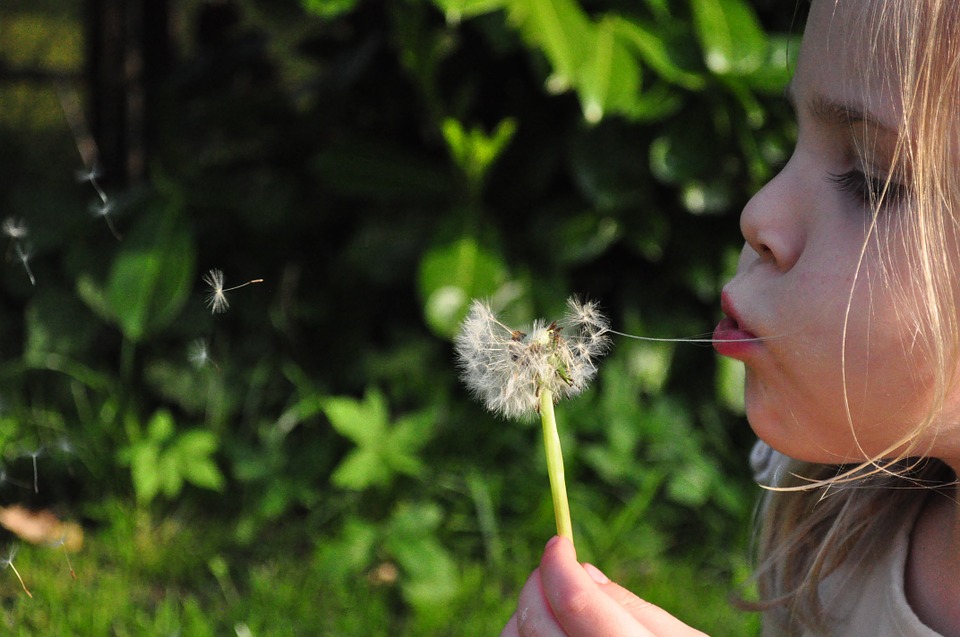Surprisingly, spring is not a cause for joy for everyone. Many children and adults suffer from allergies to flowers, or pollinosis. It turns out that in addition to medication, the course of a child’s allergies can be affected by therapeutic nutrition.
Pollen allergy is an allergy to pollen, from which it is virtually impossible to hide in the spring, so pollinosis is not cured, but you can alleviate its symptoms by stabilizing the condition and reducing the manifestation of the disease. One way to alleviate the symptoms of pollen allergy in children is a general adjustment of the diet and adjusting the diet according to the allergen (you can determine the allergen by contacting an allergist-immunologist).
Risk group:
1. Pollinosis is common in people of all ages and sexes, but in children it is more common over the age of 6. An earlier onset of pollinosis is seen in children whose parents are also susceptible to allergic diseases in their parents.
2. If a child is diagnosed with food allergies, his or her body is more prone to pollinosis.
3 Boys suffer from allergies to flowers more often than girls.
General tips on how to feed an allergic child with pollinosis:
During periods of worsening pollinosis, feed your child only self-made food. Try to ensure that the food is easy to digest (in this regard, stop eating muesli, as cereals are difficult to digest).
Exclude fried and fatty foods from your child’s diet.
Choose dairy products with a short shelf life of no more than 7 days.
Boil your baby porridge.
Give up baked goods and cakes for a while: they have a lot of binders and other ingredients harmful to health.
Tomatoes should be completely excluded from the diet: they can be given to children only in a season when they are naturally ripe, not grown in a greenhouse.
How to feed a child with different types of allergies to flowering:
1. When allergic to alder and birch pollen, limit your child’s intake of stone fruits (peaches, plums, cherries, pears, olives) and spices (cumin, anise, curry). Also completely refuse birch juice, as rarely as possible resort to treatment with birch buds and leaves.
2. If you are allergic to grass pollen, do not give your child cereal porridge, corn, bread and pasta, nuts (especially peanuts), soybeans, beans, sorrel, strawberries and citrus fruits and kvass.
3. If you are hypersensitive to hazelnut pollen, suspend consumption of nuts (hazelnuts, almonds, walnuts).
4. If you are allergic to ragweed and wormwood pollen, experts recommend temporarily giving up seeds, mustard, halva and mayonnaise, chicory, herbs and spices: celery, dill, cumin, cocklebur, curry, pepper, nutmeg, cinnamon, ginger and coriander – and also cucurbits (watermelon and melon). From phyto preparations, exclude wormwood, mother-and-mother, elecampane, chamomile, calendula, succession, yarrow, tansy, dandelion.
5. When allergic to pollen from trees that bloom in spring and early summer, the child should also avoid eating a number of certain vegetables: carrots, celery, young potatoes and paprika – these products have a common structure with tree pollen and can intensify the manifestation of allergy.
6. Your baby should not eat beets and spinach if he is allergic to grass pollen (swan).
7. During seasonal exacerbations of pollinosis all patients should exclude honey.
Outside of exacerbations (in winter and early spring) these products are not only not harmful, but even useful for your child. Eating them in small quantities, he is gradually accustoming his body to adequate reactions to pollen of relevant plants.
Additional tips for parents with flower allergies in children:
During dry and warm weather, especially in the morning hours, try to make sure your child spends more time indoors and less time outside. It is better to walk your child in the evening, when the air contains the minimum amount of allergenic pollen.
Be sure to close the windows and windowsills indoors. In very hot weather, hang the window bars with damp gauze.
Clean the house wet more often than usual: wipe the floor, windowsills, tables with a damp cloth.
Make sure the child takes a shower when he comes home from the street, because the pollen may have settled on his body. An allergic child should also wash their face, eyes and nose several times a day with saline or table salt solution (1/3 teaspoon per glass of water). Buy your child hypoallergenic soap.
Do not dry your child’s underwear on the balcony so that the pollen does not settle on it.
